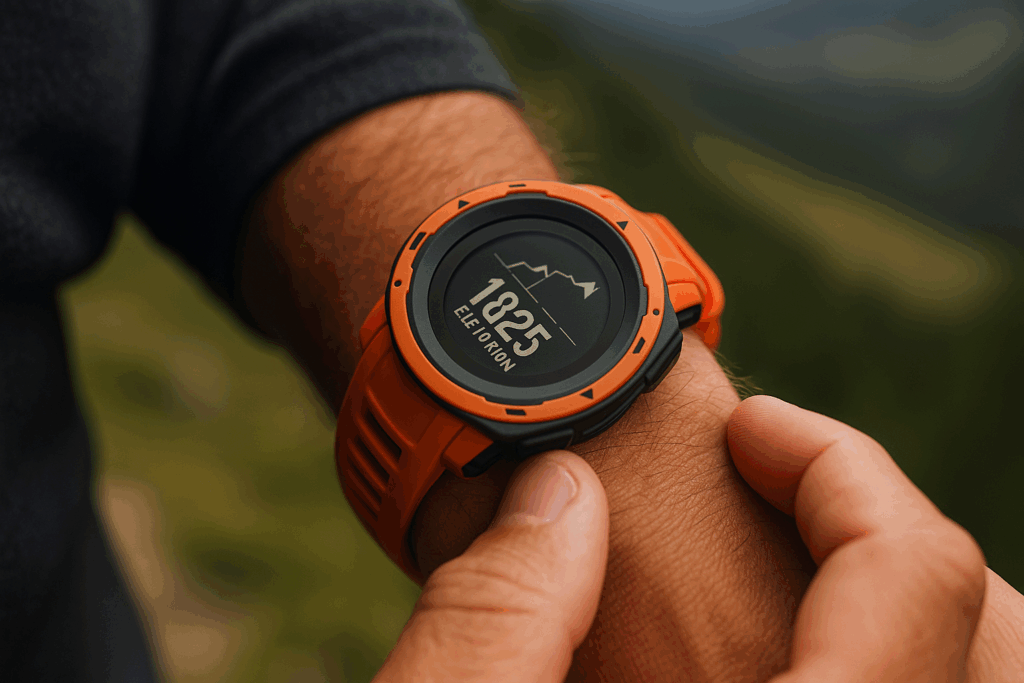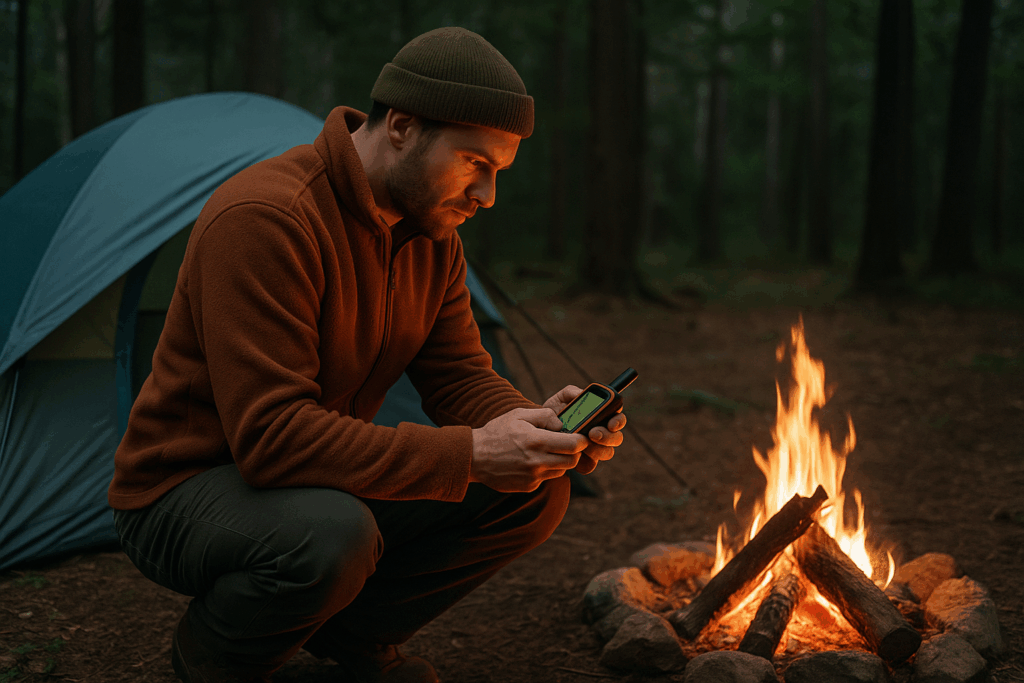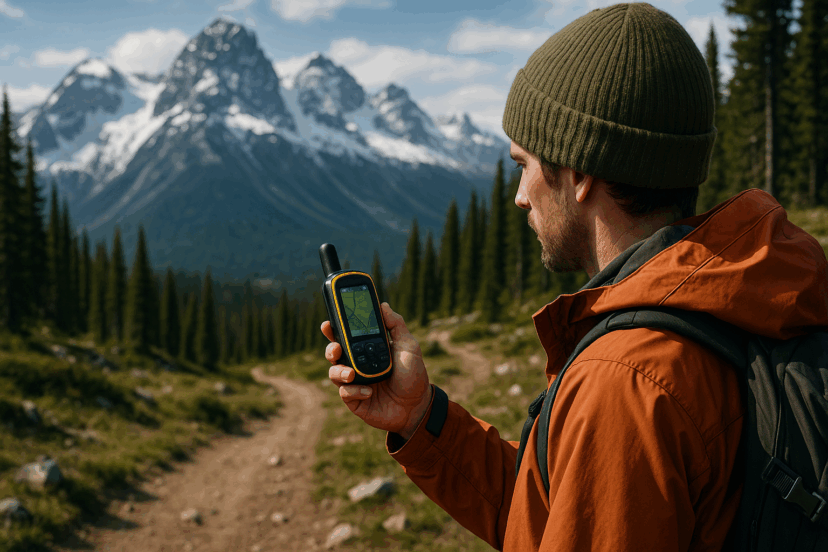Top 5 GPS Devices to Keep You on Track in the Wilderness
We may earn a commission for purchases made using our links. Please see our disclosure to learn more.
Getting lost in the wilderness isn’t just frustrating—it can be dangerous. That’s why GPS devices have become a must-have for hikers, campers, and off-the-grid adventurers. While smartphone apps are helpful, they simply don’t match the reliability, durability, and precision of a dedicated GPS unit.
Whether you’re heading into dense forests, mountain trails, or remote backcountry areas, a high-quality GPS device can be your most trusted companion.
What to Look for in a GPS Device for Wilderness Exploration
Before we dive into the best GPS units on the market, let’s go over the key features that matter most when you’re far from civilization.
Durability and Weather Resistance
Outdoor conditions can be brutal. Look for rugged builds that are water-resistant or waterproof and can withstand drops, mud, and cold.
Battery Life
You don’t want to run out of power halfway through your trip. Top-tier devices offer up to 35 hours or more of battery life on a single charge, with many supporting replaceable batteries for extended use.
Satellite Coverage and Accuracy
The best GPS devices use multiple satellite systems—like GPS, GLONASS, and Galileo—for improved accuracy and faster fixes, even under thick canopy or rocky terrain.
Offline Mapping and Storage
Offline maps are essential when you’re out of cell range. Choose a GPS unit that allows you to download detailed topographic maps and routes beforehand.

Top 5 GPS Devices for Outdoor Adventures
Here are five standout GPS devices that are trusted by pros and weekend warriors alike.
1. Garmin GPSMAP 67i
Ideal for: Backcountry trips lasting several days
Garmin’s GPSMAP 67i is a powerhouse. It combines precise navigation with two-way satellite messaging through inReach technology, perfect for emergency situations or staying in touch.
- Battery life: Up to 165 hours in standard mode
- Features: TopoActive maps, altimeter, barometer, and compass (ABC sensors), weather forecasting
- Bonus: SOS messaging via satellite
👉 View product
2. Garmin eTrex 32x
Best for: Budget-conscious hikers
A compact, reliable option, the eTrex 32x offers excellent value. Its color display is easy to read in sunlight, and it supports both GPS and GLONASS satellite systems.
- Battery life: Up to 25 hours with 2 AA batteries
- Features: Preloaded TopoActive maps, 8 GB internal memory, expandable via microSD
👉 View product
3. Suunto Vertical GPS Watch
Best for: Lightweight and wrist-based navigation
This watch packs serious GPS power into a lightweight, wearable format. It supports offline maps and provides vertical navigation data for elevation-heavy hikes.
- Battery life: Up to 60 hours in GPS mode
- Features: Barometer, compass, altimeter, weather tracking
- Style: Sleek, durable, and waterproof
👉 View product
4. TwoNav Cross GPS Device
Best for: Multi-sport use and international maps
Designed for both foot and bike navigation, the TwoNav Cross is sleek and intuitive. It supports multiple global maps and custom route planning.
- Battery life: 20+ hours
- Features: Touchscreen interface, ANT+ compatibility, weather-resistant build
👉 View product
5. Garmin Montana 700i
Best for: Off-road vehicle and hiking hybrid use
This rugged touchscreen GPS is a beast. It’s large enough to mount in an ATV but portable for hikes. It also includes inReach satellite communication.
- Battery life: Up to 18 hours (rechargeable), up to a week in expedition mode
- Features: Turn-by-turn navigation, TopoActive and City Navigator maps, built-in compass, SOS capability
👉 View product
Scientific Insights: Why GPS Devices Are Critical for Wilderness Navigation
Beyond convenience, GPS devices offer safety and spatial awareness that’s backed by science. Researchers continue to explore how GPS technology performs in rugged environments and how it’s being used to better understand human movement in the wild. Two notable studies provide insight into both the precision and practical application of GPS tools in real-world outdoor scenarios.
Enhanced GPS Accuracy in Mountainous Terrain
A study published in the journal Sensors explored the challenges of maintaining reliable GPS signals in remote, mountainous areas. Researchers developed a technique for improving location accuracy without relying on radio wave correction. Their findings showed significant improvements in pinpointing precise locations even in areas with traditionally poor signal reception.
🔗 Read more about how scientists are improving GPS accuracy in mountainous regions, which is essential for outdoor adventurers relying on dependable coordinates during backcountry travel.
Tracking Wilderness Travel with GPS Technology
Another research project, led by the U.S. National Park Service, used GPS trackers to monitor backpackers across expansive wilderness landscapes. The goal was to understand how people move through protected lands, providing data that could support better trail management and visitor safety initiatives.
🔗 Discover how GPS tracking is helping researchers understand wilderness travel patterns, revealing how GPS data can guide both hikers and park authorities.

Final Thoughts: Which GPS Device Is Right for You?
Choosing the right GPS device depends on your outdoor lifestyle. If you’re a solo hiker heading deep into the backcountry, the Garmin GPSMAP 67i offers top-tier navigation and emergency tools. For more casual weekend trips, the eTrex 32x provides solid performance without the bells and whistles.
Whatever your choice, investing in a dedicated GPS device means more confidence, less worry, and more time to enjoy nature without second-guessing your direction.
👉 Pro Tip: Always bring a physical map as a backup. Technology can fail, but paper maps don’t run out of battery. And while you’re prepping for your trip, don’t forget to pack some easy trail fuel—these camping smoked snack ideas are perfect for keeping your energy up on the trail.
FAQs
1. Are handheld GPS devices better than smartphone apps?
Yes. GPS devices are more durable, weather-resistant, and designed for off-grid use. They often include features like barometers, altimeters, and better satellite accuracy.
2. How accurate are GPS devices in remote locations?
Most modern GPS units offer accuracy within 3–5 meters. Devices that use multiple satellite systems (like GLONASS or Galileo) tend to perform better in dense or mountainous regions.
3. What’s the average battery life of a GPS device?
Battery life varies. Some models offer 18–25 hours in standard mode, while others (like the GPSMAP 67i) can last over 160 hours with efficient tracking settings.
4. Do GPS devices work without cell service?
Absolutely. They rely on satellite signals, not cell towers. As long as you’ve preloaded your maps and have a clear view of the sky, they’ll function normally.
5. Are GPS devices waterproof?
Many outdoor GPS units are water-resistant or waterproof (IPX7 or higher). However, always check the rating before full submersion or use in heavy rain.




